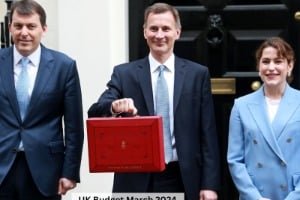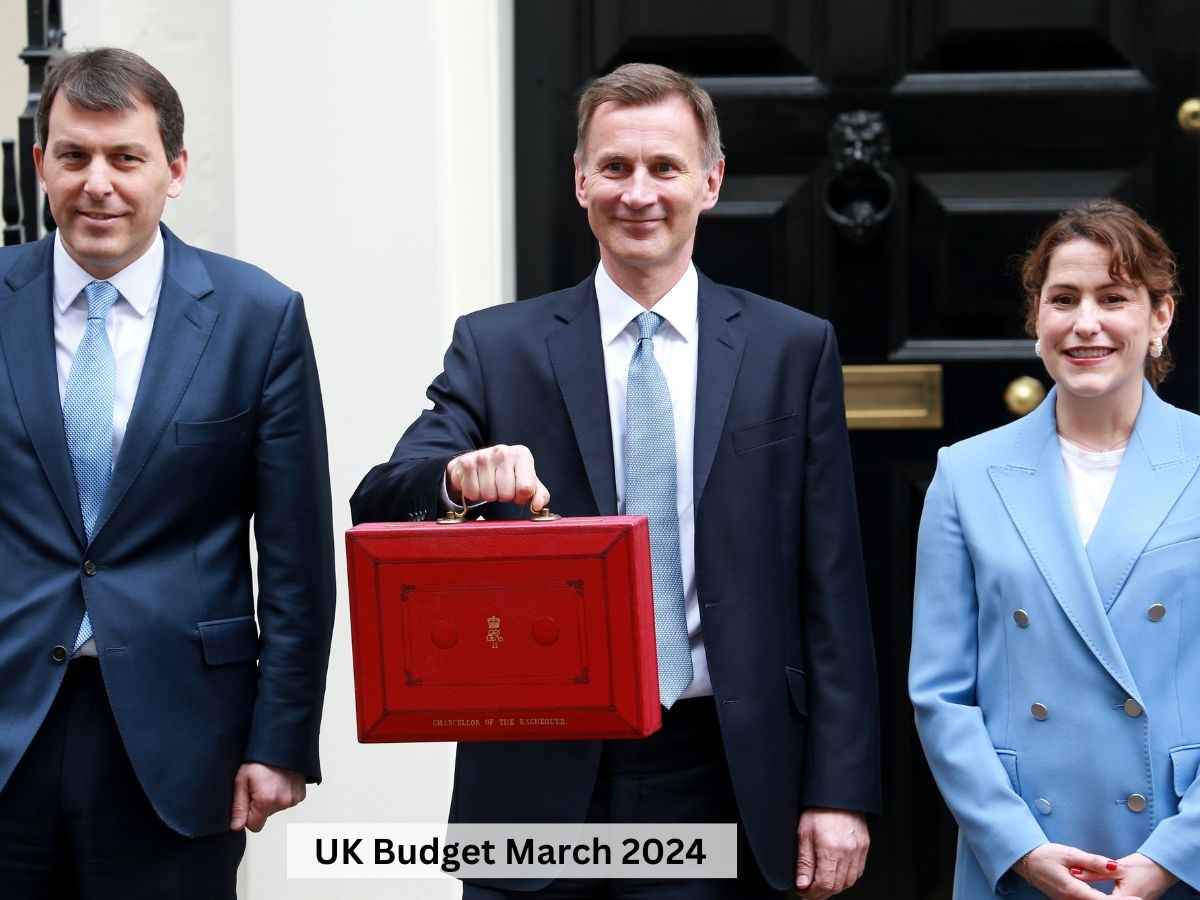Small £6bn Giveaway, Pound Sterling Unimpressed

Key Points:
- Chancellor Hunt’s budget had no surprises.
- Minor currency impacts; US data more influential.
- National Insurance cut; inflation to decrease soon.

There were no significant surprises in Chancellor Hunt’s budget with the main measures pre-announced.
The overall currency market impact was notably limited with global factors including subdued US jobs data having a more substantial impact.
The Pound to Dollar (GBP/USD) exchange rate briefly dipped to 1.2705 from 1.2720 before recovering to 1.2725 as the dollar lost ground after the US data.
The Pound to Euro (GBP/EUR) exchange rate edged lower to just below 1.1690 from 1.1700.
Britain’s 10-year gilt yield was little changed around 4.02%.
The FTSE 100 index did extend gains to trade 0.7% higher on the day as global bourses made headway.
Despite the tax cut, the budget overall emphasised that the government had very little room for manoeuvre while the overall growth dynamics remained very subdued and limiting underlying Pound support.
The main measure, as leaked in advance, was the cut in the employee rate of National Insurance Contributions to 10% from 8% from April.
 Alcohol and fuel duty taxes were frozen which will reduce inflation by 0.2%.
Alcohol and fuel duty taxes were frozen which will reduce inflation by 0.2%.
The current non-domiciled tax rules will be abolished with a new system aimed at attracting new investment.
Overall government spending plans were unchanged over the medium term.
According to the Office for Budget Responsibility (OBR), inflation will drop below 2% within a few months.
It also expects inflation to hold just below 2% until late in the forecast period when the output gap in expected to close.
GDP growth forecasts were raised slightly to 0.8% in 2024 and 1.9% 2025.
Looking at the 5-year period, The OBR considers that there will be a positive effect on aggregate GDP due to a larger population, lower energy prices, lower interest rates, and a small boost from the measures in the Chancellor’s Spring Budget.
This, however, is almost fully offset by the negative effects of lower labour participation, average hours, and productivity – both in outturn and over the forecast.
The overall GDP forecast, therefore, is just 0.1% higher than in November.
Indeed, GDP per capita forecasts are lower than in November.
According to the OBR; “While growth has slightly disappointed since then, a steeper fall in inflation and interest rates should support a stronger recovery.”
It added; “This strengthens near-term growth prospects and should enable a faster recovery in living standards from last financial year’s record decline.”
On fiscal policy, the OBR noted; “Public services spending is largely unchanged and no longer grows in real per person terms. These plans allow the Chancellor to meet his aim for debt to fall as a share of GDP with £9 billion to spare – a tiny fraction of the risks around any forecast.
The average fiscal headroom since 2010 has been £26bn.
The OBR pointed to medium-term difficulties; “higher and rising levels of inactivity offset its impact on the overall size of the workforce, leaving our forecast for the level of GDP in five years virtually unchanged from the autumn, and the level of GDP per person slightly lower.”
The tax burden is set to decline slightly in 2024, but it then rises gradually in every year of its forecast, rising to 37.1% of GDP in 2028-29, the highest reading since 1948.
Kirstine Kundby-Nielsen, FX analyst at Danske Bank, commented; “It was pretty much in line with what we expected. You can see that from the market reaction with gilts and sterling both pretty steady.”
MUFG added; “Most of the main measures were already in the media over the weekend, there were no real surprises, and the government has played it relatively safe.”
It added; “From an economic perspective that limits the near-term stimulus for the economy, so doesn’t really alter expectations for Bank of England policy.”
Rabobank also played down the budget impact; “While this has the potential to underpin demand, there has been plenty of opportunity for investors to price this in. Given the limited amount of wiggle room afforded to Chancellor Hunt, today’s budget may have limited impact on the Pound.”
It added; “Indeed, the UK’s tight fiscal position suggests that this year’s general election may also bring limited scope for volatility.”
The bank is still slightly positive on the overall Pound outlook.
According to Rabobank; “We continue to expect EUR/GBP to edge lower in H2 to 0.8400. This assumes the UK economic outlook brightens this year allowing for the Pound to maintain its tentative recovery.”
It added; “We see scope for Cable to push up to 1.3000 on a 12-month view, though we expect dips lower on a one-to-three-month view on the back of further potential bouts of USD strength.”
Source link





